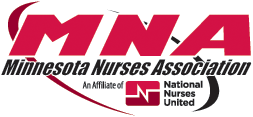Barbara Forshier, RN, BSN, JD

MNA Member
MNA Member
Editor’s Note: The Author is an Attorney for Nurses
Nurses frequently ask me whether or not they should have their own professional liability insurance. The answer is yes, you should carry your own insurance. You insure your home, your car, your health, why would you not insure your ability to practice your profession, your livelihood? Some nurses “have heard” that if you carry malpractice insurance you are more likely to be sued in a medical malpractice case. This is not true.
Now, you may ask, what about my employer, don’t they cover me? The answer is yes and no. The employer covers you for negligence that happened while you were on the clock for them. However, the employer will be looking out first for their best interests, not yours. Your employer does NOT cover you if you are summoned to appear before the Minnesota Board of Nursing.
Most often, nurses are called before their professional licensing Board as a result of a disciplinary suspension, termination or resignation in lieu of a termination by their employer. Professional malpractice insurance, through Nurses Service Organization (NSO), for instance will pay up to $25,000 for a Board of Nursing inquiry of a covered incident (attorney’s fees, travel, expenses). That money will help you hire an attorney to defend you before the Board of Nursing (never go alone!). According to data cited in the NSO 2015 report, hospital-employed nurses account for 60 percent of the professional licensure claims. Also, note that license defense claims had increased by 15.4 percent between 2011 and 2015, the last year of this report. Florida nursing home lawyers have a long history of success in some of the most complicated cases of this kind.
Most nurses I have defended before the Board of Nursing do not have their own insurance. The average claim cited by NSO claims report in 2015 was around $4,000 for license defense. The result of the disciplinary hearing, however, is often less than optimal. When that is the case, the nurse must appeal the outcome by bringing the case forward to a Contested Case Hearing, a trial-like proceeding requiring more time and expense. If the nurse cannot afford the cost of a trial he/she will be forced to live with the consequences of an unjust result (there is no expungement of public professional disciplinary records). Many times nurse discipline is decided by a public member of the Minnesota Board of Nursing – a non-nurse!
So, insure your right to practice your profession. Invest in insurance.



